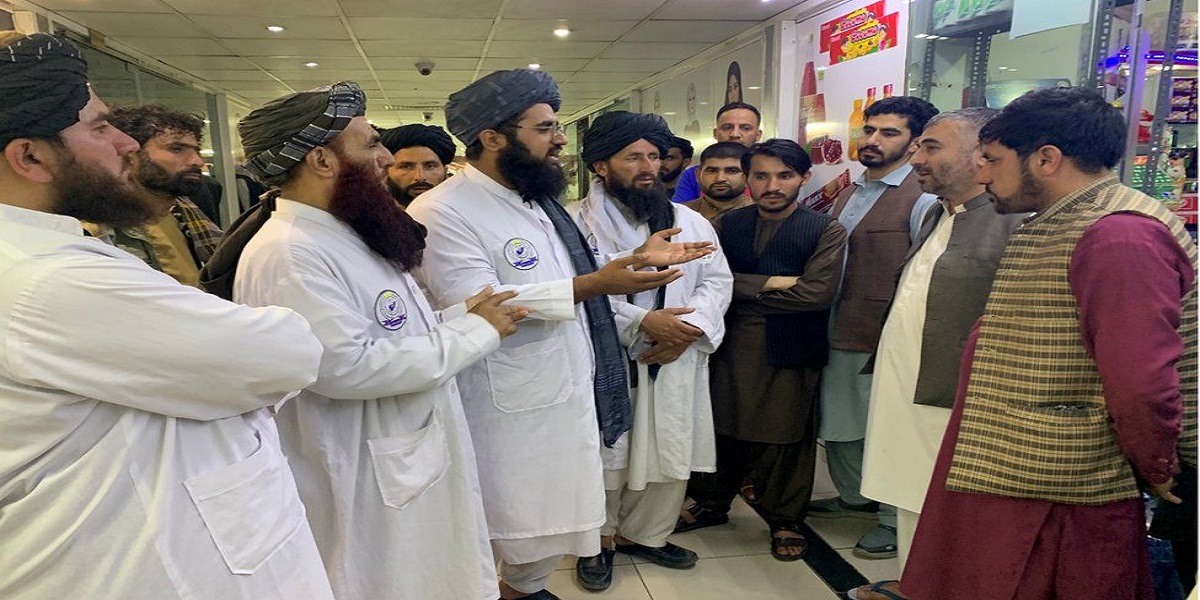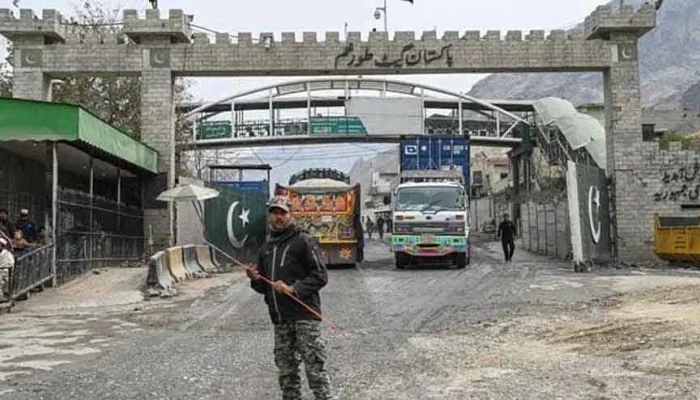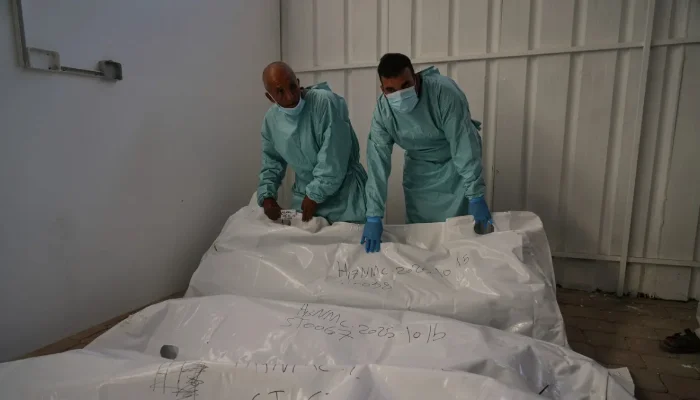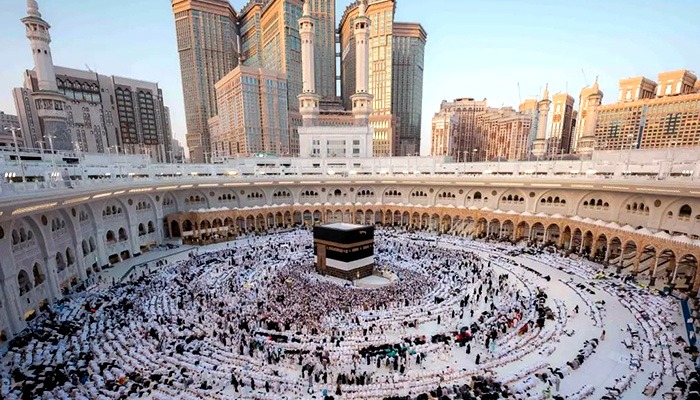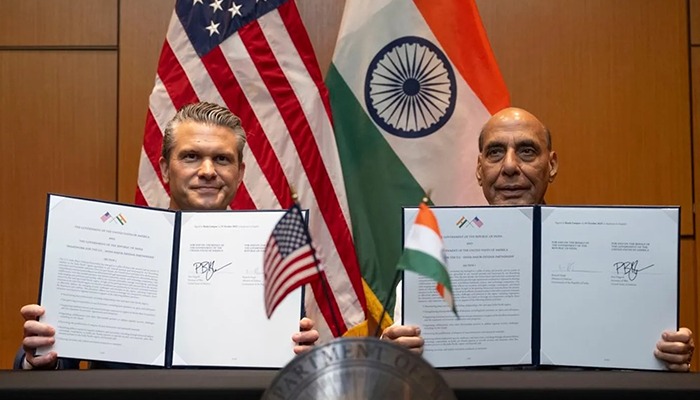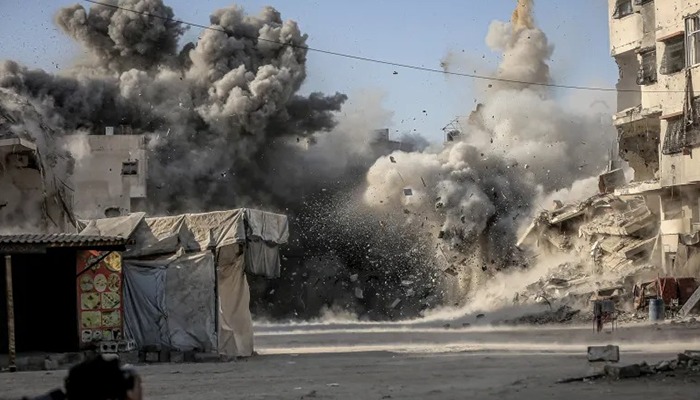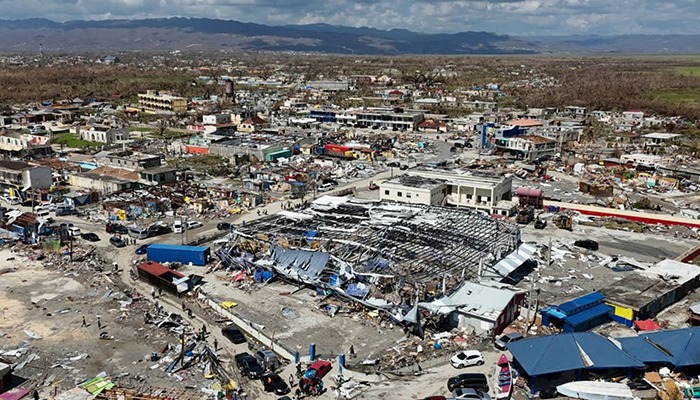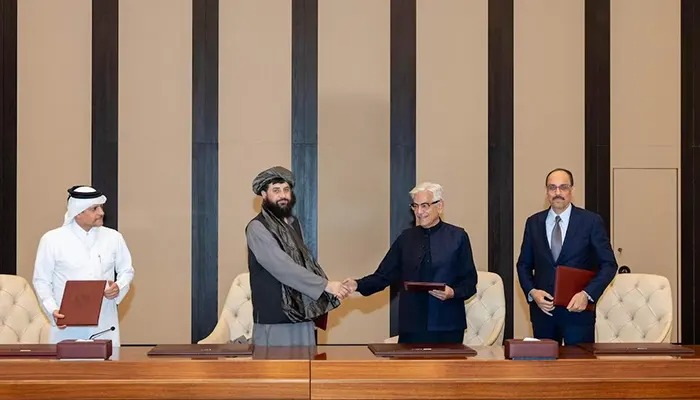In their long white gowns, the inspectors of the Taliban’s Ministry for the Prevention of Vice and Promotion of Virtue look more like food safety inspectors than “moral police”.
But they’re at the forefront of attempts to mould a new, more “Islamic” identity in Afghanistan, in keeping with the group’s hard-line views.
Their role seems broad. During their last visit to a multi-storey shopping centre in Kabul a few months back, shopkeepers remembered the inspectors checking whether products were past their expiry date, as well as instructing them to remove posters featuring women’s bodies.
Many of the images, however, still appeared to be up when the inspectors returned earlier this week, accompanied by the BBC.
Despite being the youngest in the group, a round-faced and bespectacled 25-year-old former madrassa student, Maulvi Mahmoud Fatih, led the way.
Addressing a crowd of male shopkeepers and bystanders that had been rustled up, he delivered a lecture on the importance of saying your prayers and growing a beard.
He spoke in the spirit of brotherly advice: “Keeping the beard is following the example of the Prophet Muhammad,” he said, adding with a chuckle, that it has other “benefits” too.
“These clerics have two or three wives,” he says, gesturing to his fellow inspectors. “It’s a source of power.”
He, and four colleagues, also offered to help solve any difficulties the onlookers were facing.
When one shopkeeper complained of a man, purporting to be from the Taliban, demanding free mobile phones, Maulvi Fatih wrote down his phone number and promised to investigate.
But it’s the ministry’s new decrees on what women should wear that have attracted the most attention – and criticism.
Earlier this month, it issued an edict that all women should wear a face veil in public. Any woman repeatedly not complying could see their male relative jailed or sent to court.
The topic did not feature in Maulvi Fatih’s shopping centre lectures, however. When questioned as to why? He replied: “We are talking about men’s issues to men.”
As for the new dress code, he added, “we have spoken and advised the owner of the centre and put up posters too”.
A small printout, stuck to a pillar by a staircase in the mall has two images illustrating how women should now dress – one is an all-encompassing blue burka, the other is a similar black outfit.
“Muslim women should follow the Islamic veil, this is the order of Sharia,” reads the text.
Afghanistan is a conservative country and many women already wear the burka or other face veils. In cities like Kabul, however, others simply cover their hair with a scarf, with some relatively recently adding a Covid-style face mask too.
Women’s rights activists inside and outside the country reacted with dismay to the new edict, which comes as nearly all teenage girls still haven’t been allowed back to school and many female employees have been ordered not to return to their offices.
Years of fragile progress on women’s rights looks to be unravelling.

